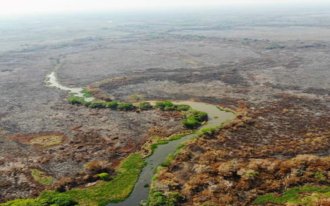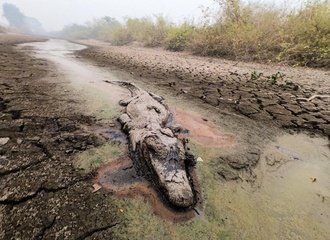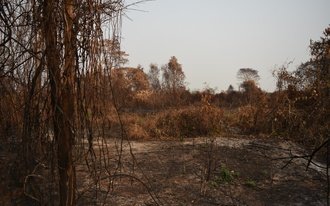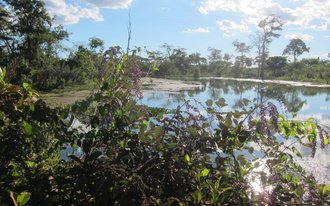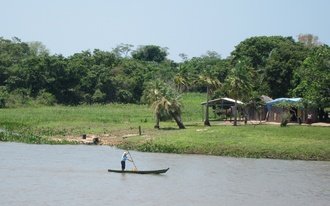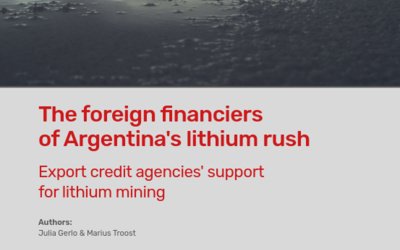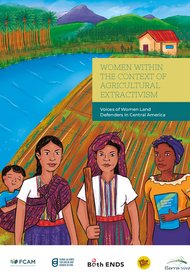The Pantanal is burning: how a wetland became a hotspot for bushfires
The Pantanal, the world's largest freshwater wetland, is suffering exceptionally devastating forest fires, mostly caused by human activities. Over the past few months, an area as big as Northern Ireland has burned down. Both ENDS's partner organisations call for attention for this ecological and social disaster.
The Pantanal is a UNESCO world heritage site stretching over Bolivia, Brazil and Paraguay. The region, consisting of rivers, swamps and lakes with in between forests, grasslands and peatlands, is known for its unique biodiversity and many special species.
This year, the Pantanal experiences extreme drought. It rained 50% less than the year before; in June the water level of the river Paraguay, which feeds the wetland with water, lowered 3,5 meters. According to Solange Ikeda of Both ENDS's local partner organisation Instituto Gaia (Brazil) the river is even complete dry now in some places.
The drought is not only caused by climate change, but also by deforestation of the nearby Amazon. The rains that fall in the Pantanal for a large part are being formed above the Amazonian forests.
Human activities make Pantanal vulnerable
Apart from the changing climate, the Pantanal also becomes more vulnerable due to human activities. Solange Ikeda: "Deforestation and the construction of dams in the Paraguay river and its tributaries lower the water level of the river further. Wet areas decrease, and the amount of dry matter increases."
Furthermore in the Pantanal farmers (illegally) burn pieces of land for cattle and soy, just like in the Amazon. The dry circumstances allow these fires to spread easily.
This makes it possible that more than a million hectares has been burned down in a region that is called "the Kingdom of Waters" by its inhabitants.
Fighting for the protection of the Pantanal
Both ENDS has been working for decades with a broad coalition of civil society organisations (including Instituto Gaia) to protect the Pantanal from canalization, hydropower dams and deforestation. Also our partners promote sustainable economic activities, for example agro-ecological food production.
The fires in the Pantanal show the importance of this protection. Not only for biodiversity and the world's climate, but also for the livelihoods of the people living there: "Many communities are now without food", explains Solange Ikeda. "Areas that were used by people for agriculture and medicinal plants are lost. The ash residue contaminates the water, so we expect increased fish mortality in the coming months. There is a lack of clean water and people experience respiratory problems, amidst the COVID-19 crisis."
Direct support to communities is difficult to organize. A boat expedition that Gaia planned to distribute food, water and hygiene products to effected communities had to be postponed because the boat got stuck in a sand bank.
Civil society fighting the fires and its consequences
So far, national and local governments are failing to effectively fight the fires. There is not only a lack of support for the prevention of illegal deforestation, but also the local fire brigades have experienced budget cuts in recent years.
Civil society is doing whatever they can now to mitigate the impacts of the fires. Gaia together with other organisations is setting up a project to form, strengthen and finance local fire brigades. They share their knowledge and experiences with politicians and encourage inhabitants to do the same.
Wetlands need protection, on national and international level
Just like the Amazon influences the situation in the Pantanal, the developments in the Pantanal take effect further downstream in the Paraná Delta in Argentina, a wetland stretching until Buenos Aires. Also in the Paraná Delta the fires rage out of control, mainly caused by the burning of land for cattle ranching combined with extreme drought, according to Laura Prol of Both ENDS's parter organisation Taller Ecologista.
Environmental organisations in Argentina have been calling for years for a law that protects wetlands like the Paraná Delta.
But also the Netherlands and the European Union can take action to stop this downward spiral in the Pantanal, the Paraná Delta and the Amazon. Where the Dutch government and others now are actively supporting companies to build infrastructure like harbours and waterways to support soy production (of which a large part is being exported to Europe), they could ask their colleagues in South America to protect these ecosystems and the communities that depend on them, and restrict the import of products linked to deforestation, such as soy.
For more information
Read more about this subject
-
Dossier
Soy: trade in deforestation
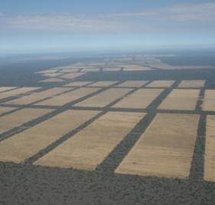
The rising demand for soy is having negative consequences for people and the environment in South America. Both ENDS reminds Dutch actors in the soy industry of their responsibilities and is working with partners on fair and sustainable alternatives.
-
Dossier
Wetlands without Borders

With our Wetlands without Borders program, we work towards environmentally sustainable and socially responsible governance of the wetlands system of the La Plata Basin in South America.
-
Blog / 15 April 2024
The year of truth: EU Member States urged to combat deforestation
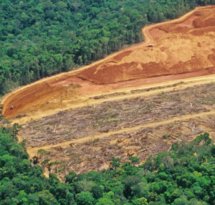
The EU is the world's largest "importer of deforestation," due to the huge volumes of unsustainably produced soy, timber, palm oil, and other raw materials that EU member states import. After many years of delay, the European Parliament and the European Council passed a law in December 2023 to address this problem: The EU Deforestation Regulation (EUDR). Both ENDS is part of a broad coalition of organizations that have been pushing for this European legislation. However, there is now a serious delay, and perhaps even postponement, of the law's implementation. Objections have been raised by a number of member states, who are sensitive to lobbying by certain business sectors and producer countries.
-
Press release / 4 March 2024
Dutch government calls for investigation into Malaysian timber certification
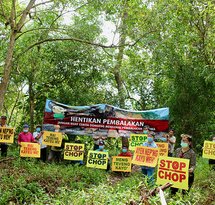
The Dutch government expects PEFC International to undertake an investigation into its own role as a forest certification system, using the Malaysian Timber Certification Scheme (MTCS). "It is about time the Dutch government takes a leading role in ensuring Malaysian timber entering The Netherlands is not associated with deforestation and human rights abuses," states Paul Wolvekamp of Both ENDS. "Considering that the Dutch government has the ambition to build 900.000 houses in the immediate future, involving massive volumes of timber, such as timber from Malaysia for window frames, builders, contractors, timber merchants and local governments rely on the Dutch government to have its, mandatory, timber procurement better organised, i.e. from reliable, accountable sources'.
-
Blog / 26 February 2024
Brumadinho: 5 years without justice
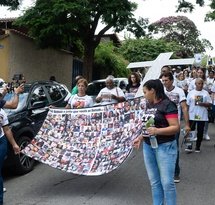
On January 25, 2019, Brumadinho region witnessed a tragedy-crime that claimed 272 lives, including two unborn children, affectionately called "Jewels" in response to VALE’s declarations that the company, as a Brazilian jewel, should not be condemned for an accident. However, the investigations about B1 dam collapse, at Córrego do Feijão Mine, showed that the scar left on the community and environment was not an accident, but VALE negligence.
-
Blog / 26 February 2024
Exploring sustainable farming practices with partners in Indonesia
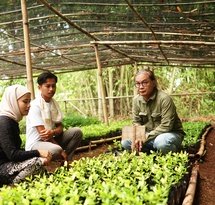
From land regeneration to improving soil health – trees play a crucial role in almost all our ecosystems. Agroforestry makes use of these benefits by combining agriculture and forestry. Agroforestry, and the reforestation and conservation efforts that are part of it, improves biodiversity and climate resilience, as well as the livelihoods of the farming communities involved.
-
Blog / 26 February 2024
Impacts of the fossil fuel sector in Guanabara Bay
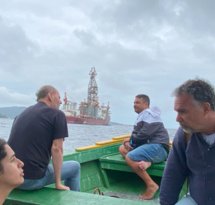
Last September, together with our Brazilian partner FASE, Marius Troost of Both ENDS visited Guanabara Bay (near Rio de Janeiro) to map the impacts of the fossil fuel sector there. During the trip, he was struck by the braveness and fearlessness of the local fisherfolk who protest the injustices faced by the people who live around Guanabara Bay and about the damage done to the environment.
-
News / 25 January 2024
'We can not have a transition when we do not talk about consumption patterns'
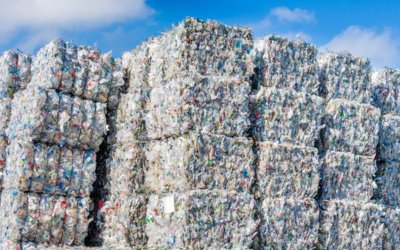
The parliamentary elections in the Netherlands are over, and the dust has somewhat settled. No matter what government emerges from the process, one thing is clear: in the Netherlands the main focus is on the Netherlands. Foreign affairs were hardly mentioned during the elections and the same applies to the process of forming a new coalition. More alarmingly, some of the winners in the elections want to cut themselves off even further from the world around us.
-
News / 24 January 2024
Both ENDS in solidarity with Justice for Brumadinho!
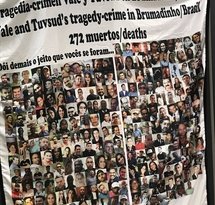
272 innocent people were killed. A tsunami of toxic mud unleashed, some 12 million cubic metres of ore tailing into the surrounding areas. January 25th, 2024 is the solemn 5-year mark of the Brumadinho upstream mining dam collapse. This was Brazil’s worst environmental and industrial disaster.
-
News / 22 January 2024
Is the Netherlands’ reputation as a world leader in the field of water knowledge deserved?
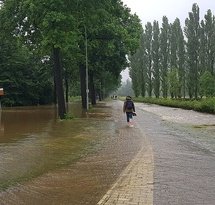
The Netherlands is a major player in the global water sector, but our investments can quite often lead to human rights violations and environmental problems in the countries where they are made. What can a new Dutch government do to reduce the Netherlands’ footprint beyond our borders? Ellen Mangnus spoke to various experts about this issue: today, part 3.
-
News / 21 December 2023
The Netherlands is certainly not more Catholic than the Pope
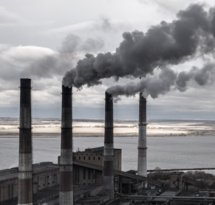
The Netherlands is well on its way with the energy transition at home, but our country continues to encourage Dutch investments in fossil projects elsewhere. This is obviously not in line with the climate goals and, moreover, these kinds of projects cause major problems in the countries where they take place. What can a new cabinet do to reduce the Dutch footprint abroad? Ellen Mangnus discussed this with several experts: today part 2.
-
News / 18 December 2023
Recommendations for Dutch foreign policy that works for people and planet, everywhere
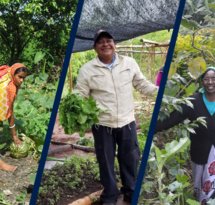
The parliamentary elections in the Netherlands are over, and the dust has somewhat settled. No matter what government emerges from the process, one thing is clear: in the Netherlands the main focus is on the Netherlands. Foreign affairs were hardly mentioned during the elections and the same applies to the process of forming a new coalition. More alarmingly, some of the winners in the elections want to cut themselves off even further from the world around us. -
News / 14 December 2023
The Netherlands can radically reduce its agrarian footprint
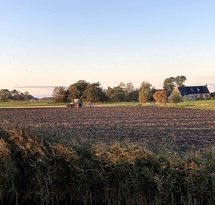
In the weeks following the elections, Both ENDS is looking at how Dutch foreign policy can be influenced in the coming years to reduce our footprint abroad and to work in the interests of people and planet. We will be doing that in four double interviews, each with an in-house expert and someone from outside the organisation.
-
News / 16 November 2023
Voting with a worldwide impact
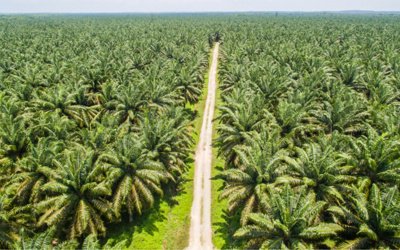
Disposable fashion items continue to flood into the country, the nitrogen crisis has brought construction to a standstill and energy poverty is on the rise, but Dutch politicians are contemplating their navels. These are problems that we can never solve on our own. The clothes we wear, the food on our plates, and the electricity that comes out of our wall sockets – they are all produced in global trade and production chains. With far-reaching consequences, both in our own country and far, very far beyond our borders. It would be naive to think that we can solve all these problems through domestic policies alone. And vice versa: we would be evading our responsibilities if we continued to believe that the Netherlands only plays a humble role on the global stage. Latest figures show that the Netherlands is the fourth largest exporter and the seventh largest importer of products worldwide. With the elections on the way, it is time to look beyond our own small country. Because it is also important to vote with a worldwide impact.
-
News / 15 November 2023
Strengthening social movements for inclusive water governance in Bangladesh
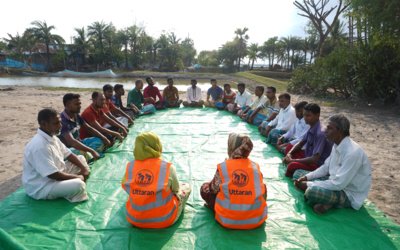
For generations, the people of Bangladesh’ flood-prone deltas have shaped their natural environment to support agricultural production. They used temporary embankments to keep tidal waters out of the floodplains for most of the year and let the rivers flow freely during monsoon season, allowing the sediment to settle on the floodplains as an important part of the delta formation process.
-
News / 13 November 2023
Recommendations to the foreign financiers of Argentina's lithium rush
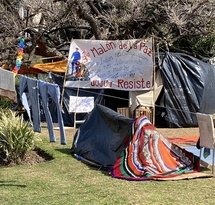
To realise the energy transition, large quantities of minerals and metals such as lithium, cobalt and rare earth metals are needed. These raw materials are mainly extracted in countries in the global South, and unfortunately this is almost always accompanied by human rights violations and environmental destruction. Today – also in light of EU Raw Materials Week that is happening this week – Argentinian organisation FARN and Both ENDS publish a joint report on the extraction of lithium in Argentina.
-
Publication / 13 November 2023
-
News / 9 November 2023
Both ENDS welcomes new leadership: Annelieke Douma and Karin van Boxtel are interim directors!
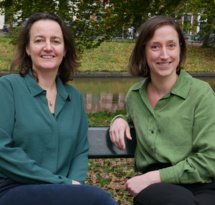
Both ENDS has two new interim directors from November 9: Annelieke Douma and Karin van Boxtel. After 15 years, Danielle Hirsch hands over the directorship. She is currently standing for election to the GroenLinks/PvdA list. Annelieke and Karin will lead Both ENDS during the transition period to a new director of Both ENDS. Together with the board and the organisation, the new directors duo is full of energy to get to work in the coming months.
-
News / 6 November 2023
Response to FMO investments in Nicaragua
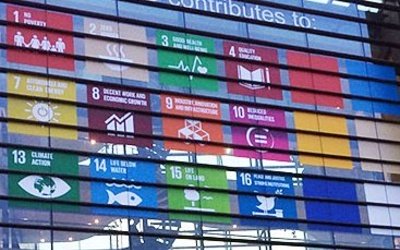
On 27 October, RTL Nieuws reported that the Steungroep Nicaragua considers the millions of euros that the Dutch development bank FMO is investing in Nicaragua irresponsible. When asked, FMO stated that 'it had to continue to support its entrepreneurs in difficult times'. Both ENDS believes that the choice to continue to invest in Nicaragua brings substantial risks, which FMO does not take sufficiently into account when deciding on financing. Previous FMO investments have caused harm to people and the environment and, in some cases, even led to violence – with, as its lowest point, the murder of Berta Cáceres in Honduras in 2016.
-
Publication / 16 October 2023



